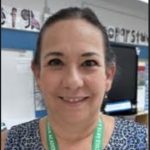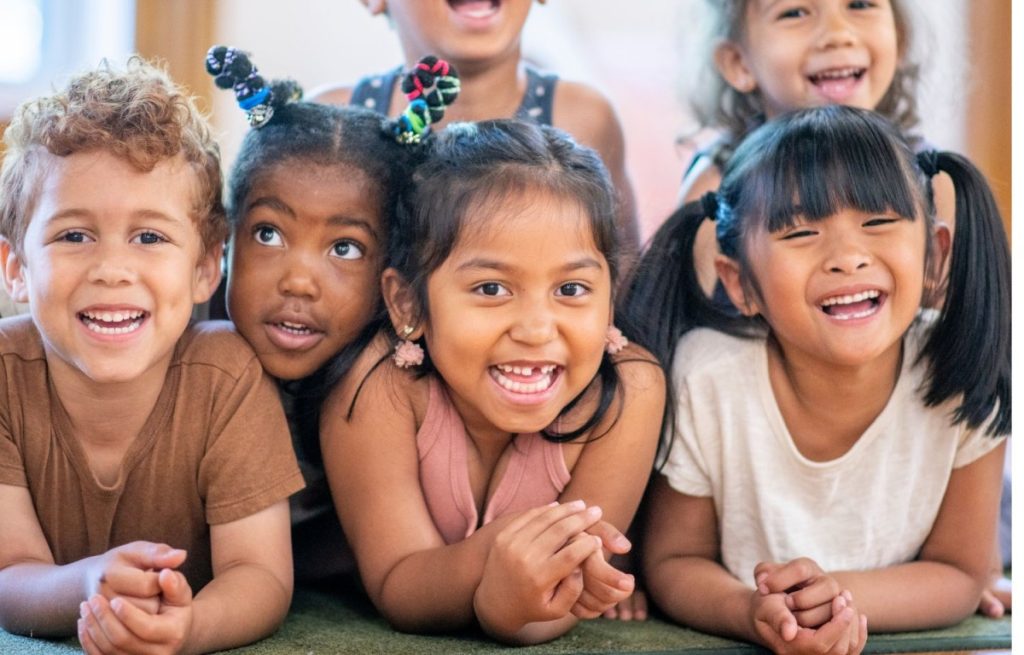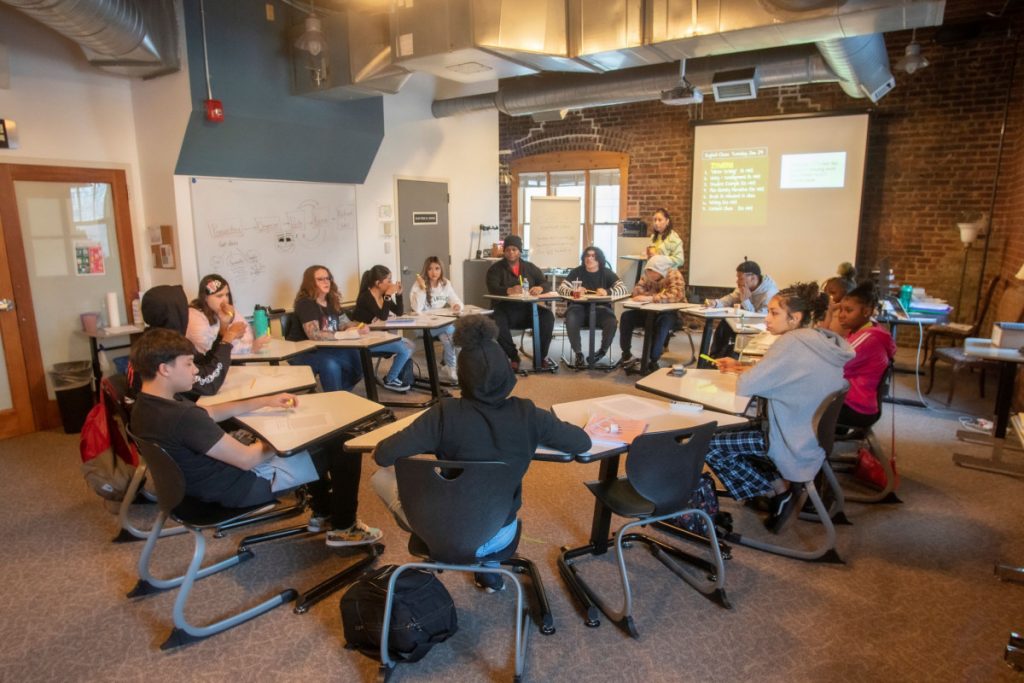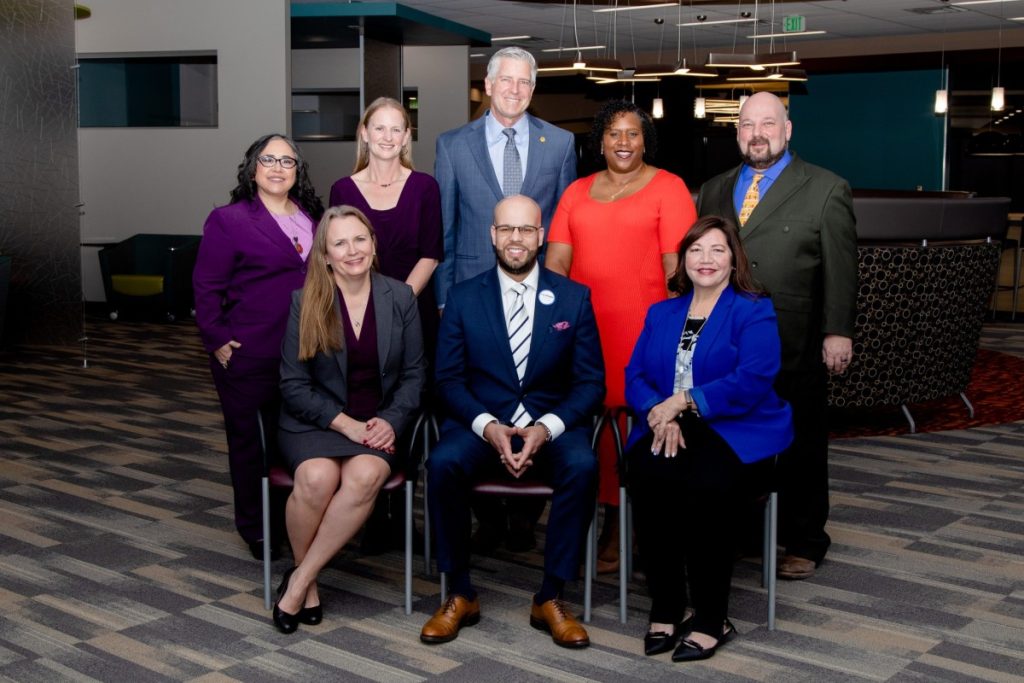Editor’s note: This article was written by Sara Crippen, an ECE teacher at Cole Arts and Science Academy in DPS. She has been married to her husband, Tyler for 27 years, and they have three children and two dogs. She has lived in Denver, Colorado for 34 years and earned her bachelor’s degree in Elementary Education from the University of Texas at El Paso. She loves her Latina roots from New Mexico and enjoys visiting her other siblings whenever she gets the chance.
I’m a Spanish-speaking Early Childhood Education (ECE) teacher at Cole Arts and Science Academy in Denver Public Schools and have been for the last five years.
I’m passionate about teaching families how to support our youngest learners so they can start off on a good note and are not playing catch-up by the time they get into elementary school.
At Cole, we’re constantly trying to find ways to engage families in the education of their children. In my ECE role, I enjoy interacting with parents directly every day. We don’t save everything for just conferences; we are able to troubleshoot throughout the year and collaborate to support their children.
Throughout my time in the classroom, I have learned the benefit of giving positive feedback to parents about their students. While we may think about calling home when there are negative behaviors or issues, at the root, parents want to hear the good things their kids are doing too and in turn this gives us an opportunity to work as a team in support of their student’s education.

I’m grateful I grew up in a household where my parents were strongly convinced that education mattered. My dad was a chemical engineer and my mom graduated with a degree in history and French, so education was important to them.
From day one, my parents were not allowed to speak Spanish in school, so we were not encouraged to learn until much later. But they realized how important it was for us to keep our language and culture alive, so much so, that I spent 15 months in Mexico to learn Spanish.
I grew up in Las Cruces, New Mexico as the 11th of 12 children and my experience there and in El Paso, where we moved when I was in high school, was shaped by criticism and racism for being Mexican-American. There was a bias against Mexican-Americans near the border and people assumed we were “dumb” because of how large our family was, but my parents felt it was a blessing to have children, and all my siblings have gone on to earn advanced degrees in various fields.
I wanted to be a teacher since I was little, I think at first because I wanted to write on the chalkboard like my teacher, but my passion grew as my love for learning grew. My first teaching experience left me feeling unprepared in managing and organizing my classroom. I didn’t feel supported by the other teachers, and I had no network, so I took a break from education.
But I knew it was my calling. I went back to teaching after my kids were born, first as a paraprofessional and then as a reading interventionist. I was trained in “the science of reading” which was a pilot at the time and is now common practice for reading instruction.
I wanted to be in ECE as I thought it was better to identify issues and support students earlier which lead to better outcomes when they are older. We now know how much learning happens before the age of three and that most brain growth happens before children even attend preschool which is out of the control of teachers.
But that is where our work really can impact students and families. Coming from an intervention background, ECE felt like so much “wasted time” because of the focus on play, but it took me little time to recognize the learning that happens all day long.
We may be looking at beginning sounds of toys kids are playing with or other objects in the room that rhyme with those toys. What we see and interact and touch and feel in real life engages our senses and understanding of the world and those lessons are experienced, not taught.
There are more and more expectations placed on little kids; there is a lot to learn and it’s hard. But if I am not preparing my kids for kindergarten, they are going to be caught in a difficult situation. I need to make sure they are ready socially and emotionally, understand what the rules are, and that life is not just about them, but rather there are other people in the room.
By the time children enter kindergarten they are expected to know all the letters and how they sound, the process of stringing letters together to make words in addition to their numbers and counting.
One of the best lessons I learned was from my dad who was always reading – including the textbooks I brought home from school. He gave me curiosity about the world and I try to bring that out in my class. I wonder why this happens. What happens after? Then what? It gives a sense of fun to lessons.
Even with all the academic pressure facing young children today, I have a lot of hope for the future. I know that my role is more than teaching the academic skills needed for kindergarten. It is teaching them how to have a voice and communicate their needs in appropriate ways to other kids and adults.
It’s giving them the vocabulary to regulate their feelings throughout the day and recognizing when to be silly and when it is time to listen.
Ultimately, it’s about how we can support one another. They are still little kids, and they just want to have fun so the more we make our learning environments fun, happy and calming, the easier students will learn new concepts.
We are hardwired to interact with each other, and not with a screen, so our time together in the classroom and with our peers and families sets us up for healthy academic futures.




